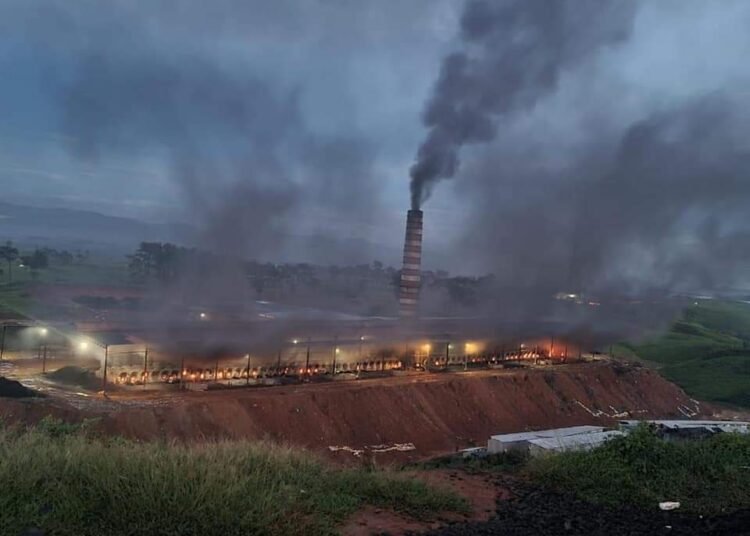The notification issued by the Meghalaya State Pollution Control Board (MSPCB) regarding the norms for setting up of coke plants has now come under legal scanner.
The notification dated December 23, 2020, issued by the MSPCB under Section 17(1)(n) of the Water (Prevention and Control of Pollution) Act, 1974 and Section 17(1)(h) of the Air (Prevention and Control of Pollution) Act, 1981 prescribed norms and criteria for setting up of coke plants of various capacities.
However, East Jaiñtia Coke has filed a writ petition in the Meghalaya High Court alleging that the notification is without jurisdiction and ultra vires the air and water pollution laws.
Supreme Court lawyer Abhishek Manu Singhvi who appeared for the petitioner said during a recent High Court hearing that the notification is without jurisdiction and has been passed with total disregard to the statutory provisions of the Air and Water Pollution Acts.
According to Singhvi, Section 17(1)(n) of the Water Pollution Act specifically stipulates that one of the functions of the State Pollution Control Board, with regard to setting up of plants, is to advise the State government with respect to the location of any industry, the carrying on of which is likely to pollute a stream or a well.
He contended that, a plain reading of the provision, indicates that, the notification issued by the MSPCB which is patently not advisory, but a prescription of norms is clearly ultra vires the statute, and without any jurisdiction.
Singhvi further contended that, though objections have been raised on the ground of alternative efficacious remedy that can be availed of before the National Green Tribunal (NGT) coupled with the fact that, the NGT itself, had been seized with a similar matter and has endorsed the notification and held it to be valid.
However, Singhvi told the court that NGT being a tribunal is not vested with plenary jurisdiction. He placed reliance on some of the judgments of the Supreme Court that notwithstanding the NGT Act, remedy before the High Court, continues to be available under Article 226 of the Constitution of India.
The senior lawyer while referring to the judgments, said that the NGT does not oust the jurisdiction of the High Courts, under Article 226 of the Constitution, and that prerogative of writ jurisdiction of High Courts is neither taken away nor it can be ousted, being a part of the basic structure of the Constitution.
Advocate General Amit Kumar on the other hand defended the notification and stated that even though the notification has been issued under Section 17(1)(n) and 17(1)(h) of the Water and Air Pollution Acts respectively, the same is well within the powers of the State Pollution Control Board, as stipulated by the Act, by the application of Sections 24 and 25 thereof, which has cloaked the Boards with ample power to prohibit and restrict the setting up of any activity, that may cause pollution.
Kumar has alluded to the powers of the Board, in granting Consent to Establish and Consent to Operate, and stated that the source of power in issuing the notification flows from these provisions.
Justice Hamarsan Singh Thangkhiew after hearing the lawyers for the parties, observed that the only point in contention is on the point of law, which is whether the impugned notification is ultra vires, the Air and Water Pollution Acts.
“On perusal of the provisions of the Water and Air Pollution Control Acts, as given in Section 17(1)(n) and 17(1)(h) respectively, debatable questions have arisen as to whether the State Pollution Control Board has acted without jurisdiction in issuing the impugned notification dated 23.12.2020. This aspect, undeniably deserves the attention of this court, in discerning as to whether, read with the other provisions that is, Section 24 and 25, the said notification can be sustained as advocated by the State respondents. The central fact, however, is that the pointed challenge is to the notification for which it has been argued, no remedy is available before the NGT,” Justice Thangkhiew said while listing this matter on November 21.
























